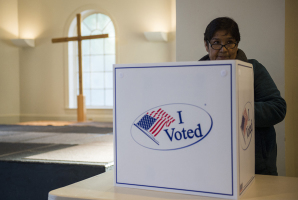Marriage and the Economy
No Dough, No Go?
Marriage is under attack on several fronts, from our culture of serial monogamy and easy divorce to the new push for so-called "gay marriage."
But there's another, little-understood theater in the war on marriage-our struggling economy. Andrew J. Cherlin and W. Bradford Wilcox have written a fascinating and disturbing article in The Wall Street Journal called "The Generation That Can't Move On Up." Cherlin, a professor at Johns Hopkins, and Wilcox, who directs the National Marriage Project at the University of Virginia, describe how the economic meltdown is affecting the marriage rates of working-class young people.
People in this group, who hold only high school diplomas and are between the ages of 25 and 44, have been hit hard by the current recession. Working class families have seen their wages fall toward the level of the working poor.
What do today's tough times have to do with marriage? In a word, fear. According to Cherlin and Wilcox, "Working-class couples still value marriage highly, but with their paychecks shrinking, they don't think they have enough money to make a marriage work." The fear that they can't afford to get married translates into an alarming increase in cohabitation and out-of-wedlock births. The share of working-class women who were living with someone when they gave birth jumped from 10 to 27 percent in just over a decade.
We already know the result of such trends. Cherlin and Wilcox point out that children born to cohabiting parents "are more than twice as likely as children born to married parents to see their parents break up by age five."
These aren't the only attacks on marriage and family caused by the Great Recession, however. Cherlin and Wilcox say that as young working class couples struggle in this economy and forego matrimony, they are also less likely to attend church.
So how should we respond to this latest front in the war on marriage? First, we need to recognize the very clear connection between moral and economic issues. They frequently spill over and reinforce one another, just as the Great Society anti-poverty programs unintentionally sparked a huge increase in socially destructive family breakdown, and just as the loss of ethics caused the economic crisis of 2008.
Second, the Body of Christ must teach its younger members-our children-what marriage is all about. Yes, we should praise our young people who want to begin their marriage on a sound economic footing. But we have got to remind them that marriage is not primarily an economic arrangement. It is a lifelong, covenant relationship between a man, a woman, and God. The husband and wife promise to love and cherish each other (remember the words?) for richer, or for poorer.
In other words, for Christians, the call to marriage does not depend on a healthy job market. But teaching our young people is one thing, supporting them is another.
Are you and your church willing to do all in your power to support traditional marriage? Good. And if you know a struggling young Christian couple, are you and your church prepared to help them in practical, even financial ways? Even better.
Because in these tough economic times, talk is the only thing that is cheap.




























